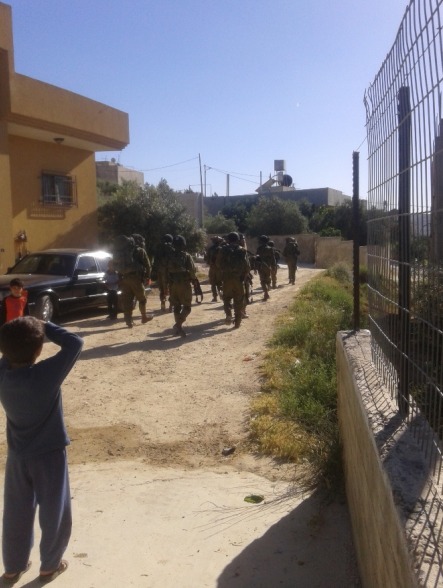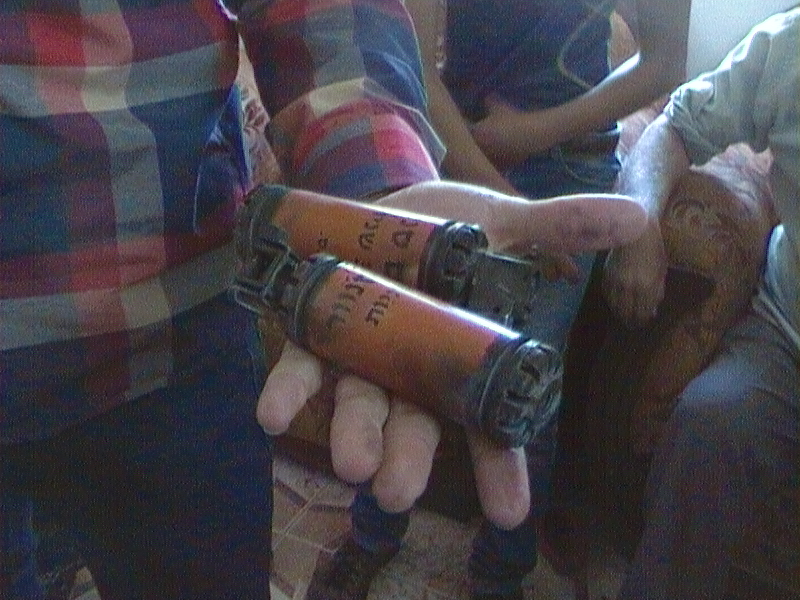Tag: Awarta
-
“What Happened to your Hand?”
24th May 2014 | International Solidarity Movement, Nablus Team | Awarta, Occupied Palestine On March 22nd 2013, Mohamad Walleed Qwareeq was near the local school in the northern district of the town of Awarta, located approximately 8 kilometers southeast of Nablus. Mohamad, 22 at the time, was with a friend eating almonds, in a grassy field,…
-
Harassment in Awarta
2nd May 2014 | International Solidarity Movement, Nablus Team| Awarta, Occupied Palestine At 4.30 am on Wednesday the 30th of April; a group of Israeli soldiers broke into a family home in the village of Awarta, near the illegal settlement of Itamar. 11 soldiers woke up the family, claiming that it was “security search”. A member of the family…
-
Israeli forces shoot tear gas into houses in Awarta village
20th April 2014 | International Solidarity Movement, Nablus Team| Awarta, Occupied Palestine On the 20th of April, five Israeli jeeps entered the village of Awarta. The Israeli forces broke into four houses and shot several tear gas and stun grenades inside the houses, leaving several families with no other alternative than to sleep elsewhere until…



